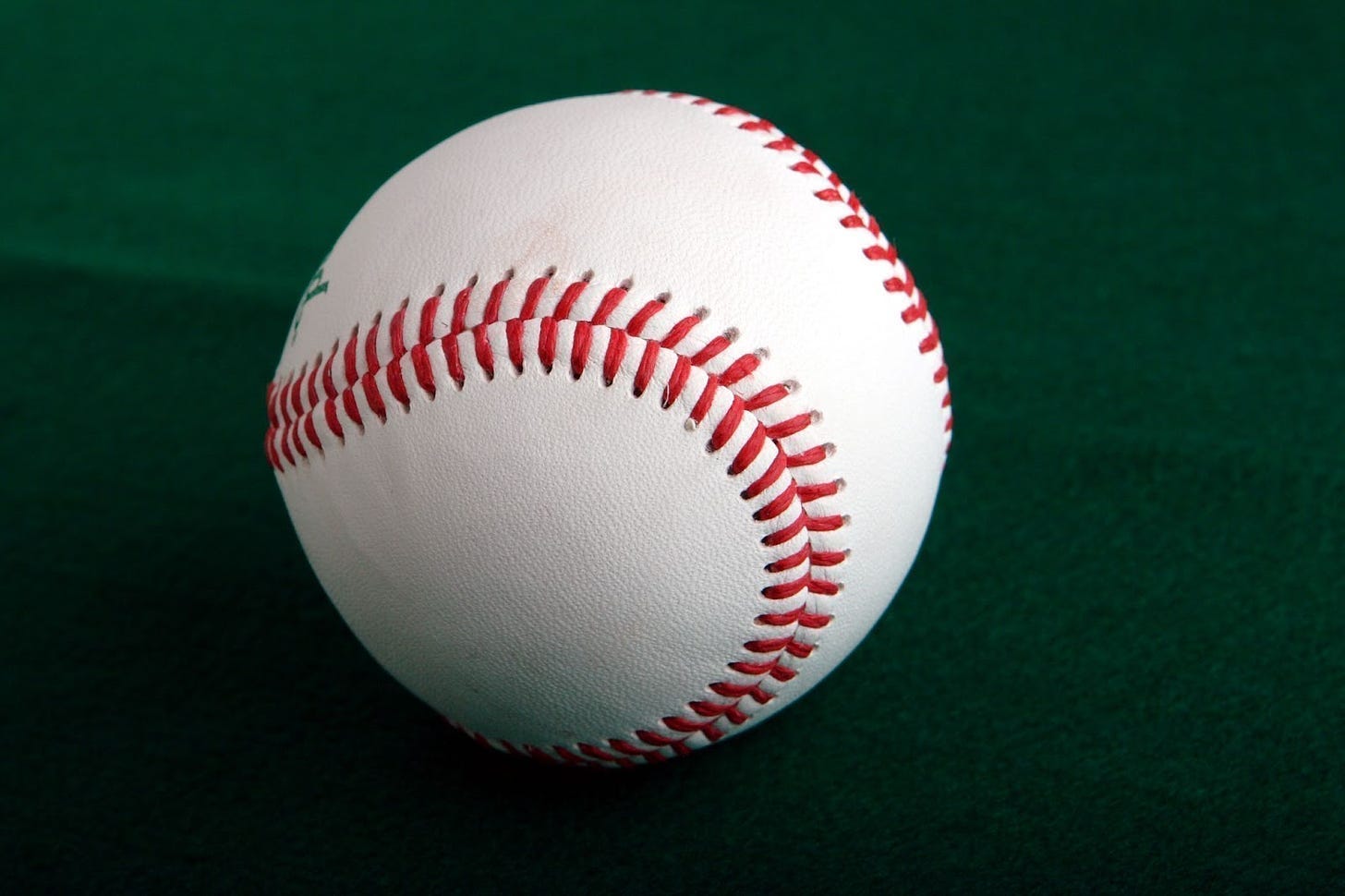Photo credit: Tage Olsin
Last week, Ichiro Suzuki was inducted into the Baseball Hall of Fame along with two others (who I hope to write about soon). A star in Japan, Ichiro didn't join a Major League team until he was 27. Nevertheless, he became the first big Japanese star in America
The achievements of the right fielder, known by his first name Ichiro, include:
MVP in his first year in the Majors
Record holder for most hits in a single season
24th all-time in most hits (3,089)
Of the 33 members of the 3,000 Hit Club, his batting average was 13th-best (.311)
Ten-time Gold Glove (best defensive player at his position)
Three-time Silver Slugger (best offensive player at his position)
392 of 393 members of the Baseball Writers Association of America voted for his induction into the Baseball Hall of Fame in his first year of eligibility.
I won't criticize the one who left him off the ballot. Perhaps the voter already had a full ballot of carryovers from previous years. Then again, perhaps the voter didn't think Ichiro was as good as several contemporaries who are shoo-in Hall of Famers (or would be if not for steroid allegations and scandals) and didn't deserve the distinction of being unanimously selected. Whatever the reasons, it's fair to compare Ichiro with his contemporaries.
But who were his contemporaries? Because a baseball player's prime years can be a long stretch (in contrast to, say, NFL running backs), I looked at the top players who entered the Majors from ten years before Ichiro's entry in 2001, to ten years after.
Last October I developed the stats called Bases Gained and Scoring.
Bases Gained (which I'm changing to All Bases) is Total Bases + Walks + Stolen Bases.
Scoring (which I'm changing to All Runs) is Runs + Runs Batted In - Home Runs. (Home Runs are subtracted to avoid being counted twice as both runs and RBI).
I took data from Stathead and compared Ichiro with his contemporaries, adding "All Bases" and "All Runs."
Ichiro currently ranks 18th from this generation in All Bases (although he may be surpassed by still-active players in the coming years).
ALL BASES, Players Entering Majors 1991-2011
Ichiro was a lead-off hitter, with fewer opportunities than most players to drive in runs. He ranks 32nd from this generation in All Runs.
ALL RUNS, Players Entering Majors 1991-2011
So, yes, Ichiro''s overall career wasn't as great as many in his generation, even with the 3,000 hits. In the end, however, these charts and stats don't matter. Ichiro deserves the Hall of Fame because of his first ten years (2001-2010):
He earned all of his Gold Gloves and Silver Sluggers.
He is tied with Pete Rose for most 200+ hit seasons ever with ten, all from his first ten seasons.(Rose had his over 15 seasons, 1964-1979).
In this period, Ichiro had the most hits ever over any ten-year span (2244)
His overall Bases Gained (or All Bases) was 2.36/game.
He averaged 105 runs per season.
His .331 batting average tied for best in that span with Albert Pujols
He was reliable, playing 159 games per year on average.
Ichiro's last great year was at age 36, past the end of the prime years of most athletes. After 2010, his production fell off. (While his first ten years saw a .331 average, his overall 19-year career average dipped to .311.) Had Ichiro stopped playing at age 36 after ten seasons, he would still be a Hall of Famer.
Some players make the Hall of Fame because they were great for a short time and good for a very long time. Ichiro, however, was great for a long time (ten years). The list of players who were genuinely great for more than ten years is relatively short.
Congratulations, Ichiro!.
James Leroy Wilson writes The MVP Chase (subscribe). Thank you for your subscriptions and support! You may contact James for writing, editing, research, and other work: jamesleroywilson-at-gmail.com.





